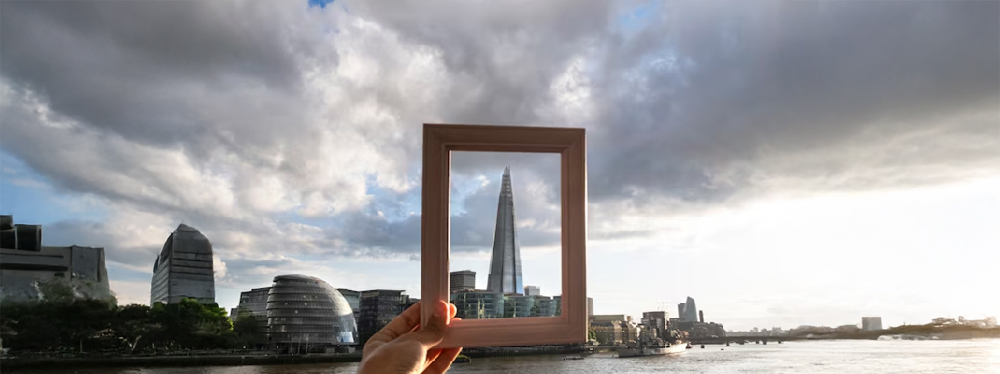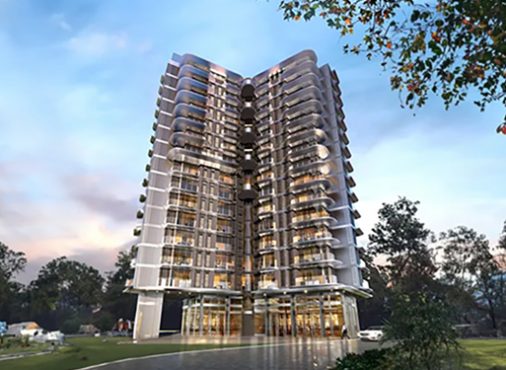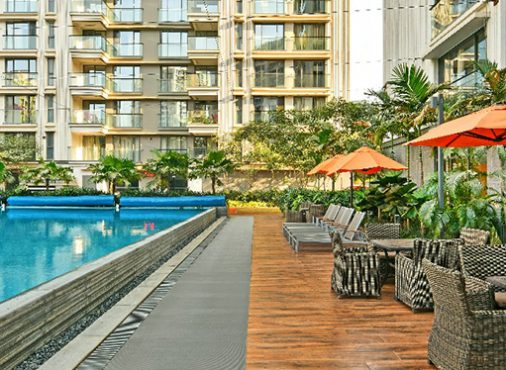In the luxury real estate sector, Mumbai and Dubai are known to be the most significant cities that lure investors from all around the world. Both the cities represent distinct opportunities and also come with their own set of risks, growth prospects and market conditions. On one hand, Mumbai is the financial capital of India, whereas Dubai is known to be the international hub for conducting business.
It is important to assess factors like price range, rental returns, demand drivers and other legal regulations, as both cities have witnessed huge developments in the luxury real estate domain. In this blog post, we will compare both cities in terms of luxury real estate investment returns.
Overview of Mumbai and Dubai’s Luxury Real Estate Markets
Being known to be the financial capital of India, Mumbai boasts a blooming and unique real estate market. The real estate segment has many mainstream residential areas and properties like Worli, Altamount Road, Bandra and South Mumbai.
On the other side, Dubai has positioned itself as an international luxury real estate destination, luring investors and HNIs from all over the world. Dubai does not impose any capital gains tax or other taxes pertaining to rental income, which results in a steady inflow of global buyers.
Though both cities showcase immense opportunities in the luxury real estate domain, the main points of differences lie in their returns, market and investment conditions. Mumbai seems to be more appealing for stable and long-term investors, whereas Dubai has high, immediate returns along with a flexible investment market for international investors.
ROI Comparison
Various factors like rental income, capital growth, taxation and overall economic landscape can influence the return on investment (ROI) in the luxury real estate segments of Mumbai and Dubai. Below is a glimpse of the ROI prospects in both cities:
- Average Rental Returns in Mumbai: The rental returns in Mumbai can differ significantly and are based on various factors like area, property type and market conditions. The rental yields in the city can be lower when compared to other international hubs, mainly because of rising property costs in mainstream locations.
Generally, the average rental returns in Mumbai can be around two to four per cent. However, this estimate can be higher in evolving areas. Prime luxury areas tend to give lower returns because of high price points.
- Average Rental Returns in Dubai: Rental returns in Dubai are relatively higher because of low property prices and high rental demand, particularly in locations preferred by investors and expatriates.
On average, the average rental returns are around 5% to 7%, according to the location and property type. Also, the favourable tax environment, high demand for properties and low property prices can make it an immensely lucrative market for investors who seek strong rental yields.
- Capital Growth in Mumbai: In Mumbai, the capital growth has been steady which reaps an appreciation of five to eight per cent since the past decade. Upcoming areas like Thane and Navi Mumbai are witnessing rapid growth, backed by urban infrastructure and reasonable property prices.
To sum up, the luxury real estate market in Mumbai is anticipated to see modest appreciation in the short term, but the long-term capital appreciation appears to be promising.
- Capital Growth in Dubai: Dubai has witnessed strong capital appreciation that fetches an annual growth of four to eight per cent in the last few years. The real estate market observed a notable recovery after 2020, influenced by foreign investment and government incentives. Dubai’s real estate segment is poised to see moderate to strong capital appreciation in the medium term.
Read Also: Can a Foreign Citizen Inherit Property in India?
Lifestyle and Investor Appeal
Mumbai and Dubai provide unique investment and lifestyle opportunities that make them a favourite among investors. Here’s how:
Mumbai
- Financial Capital: Mumbai has a booming job market and ample opportunities in tech, finance and entertainment, thus making it the economic heart of India.
- Elite Lifestyle: Various premium residential areas like Bandra, South Mumbai, and Worli provide a lavish lifestyle full of premium amenities.
- Global Presence: Mumbai is a cosmopolitan city in India that has a huge expatriate population, thus resulting in international cultural exposure.
Dubai
- Accessibility: Dubai offers prompt connectivity to the world through Dubai International Airport and a brilliant transportation system.
- Attractive Rental Returns: Lucrative rental returns provide around five to seven per cent, mainly in medium to highly evolving areas.
- Tax Benefits: Dubai does not have income tax, inheritance tax or capital gains tax, which makes it a monetary haven for individuals and corporations.
Factors to Consider for Investors
Striking a balance between various economic and legal factors is essential to make well-informed decisions for investors which will ensure a safe and secure investment strategy. Mentioned below are some important factors that investors can consider:
- Location: Investors need to assess proximity to main business and transport hubs.
- Diversification and Risk Appetite: The investment duration and risk appetite should fit systematically within the investor’s portfolio.
- Legal Charges and Taxation: Investors should ensure that all relevant rules and regulations are complied with while keeping other documentation and taxation-related aspects in place.
- Capital Growth: Investors need to evaluate past trends and growth prospects to arrive at the best possible conclusion.
Read Also: Can a Foreigner Buy Property in India? – Essential Guide
Making the Correct Choice
Mumbai and Dubai offer significant potential for returns; however, the decision should align with factors such as investment goals, duration, and market timing. Mumbai boasts strong growth potential, supported by its status as a financial hub and the increasing demand for premium properties. On the other hand, Dubai is an ideal choice for those seeking transparency, high rental yields, and a more favourable tax regime.
Rustomjee provides an array of elite residential properties tailored to your preferences. Contact us today to explore investment opportunities and take the first step toward a prosperous financial future.
FAQs
- Which city offers higher rental yields: Mumbai or Dubai?
Dubai generally offers higher rental returns compared to Mumbai. Premium properties in Dubai can yield around 5 to 7% annually, driven by factors like higher rental demand and a more investor-friendly environment.
In contrast, Mumbai tends to offer lower rental returns, typically around 2 to 3%, due to high property prices, limited supply, and relatively lower rental yields.
- Are there restrictions on foreign ownership in Mumbai and Dubai?
In Mumbai, foreigners can purchase property only if they have been an Indian resident for a minimum of 182 days in the previous year, however, certain limitations do apply for agricultural land.
In Dubai, foreigners are allowed to buy property in designated freehold areas, granting them full ownership rights. However, properties outside these zones typically require leasehold arrangements or the involvement of a local partner.
- What is the future outlook for luxury real estate markets in both cities?
The future prospects in Mumbai’s real estate market are favourable, backed by rising urbanisation, infrastructure enhancements and an increasing demand from wealthy individuals. In Dubai, the real estate sector is anticipated to remain strong due to a favourable tax environment and constant demand for international investors.








